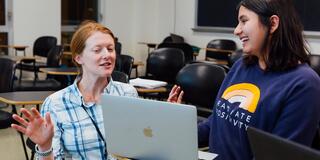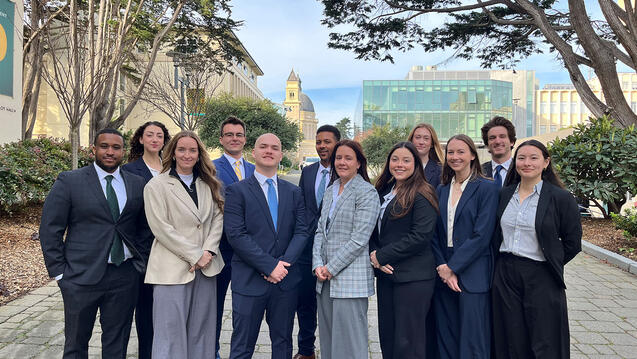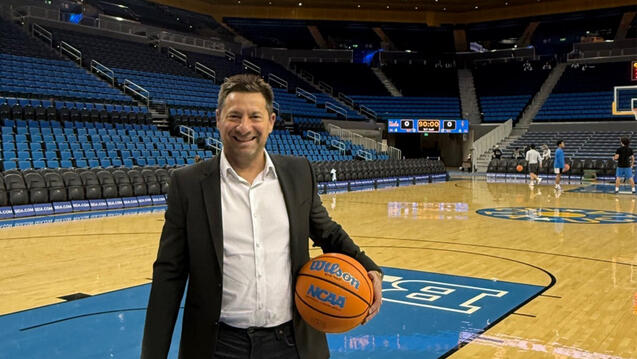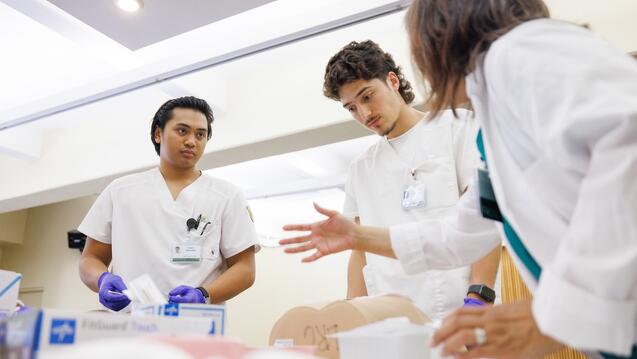If at First You Don’t Succeed, Fail, Fail Again

For the first six weeks of his Behavioral Health Informatics class, Wyatt Lim-Tepper MS ’19 felt lost.
“I would leave class more confused than I’d been when the class started,” he said. “And when I went to the professor’s office hours to ask questions, the same thing happened.”
Class discussions wandered. Deadlines shifted. There was no textbook. The professor asked more questions than she answered.
And instead of submitting their papers to the professor for grades, the students first shared their work with each other, giving feedback — often multiple rounds of feedback.
Welcome to Kelly McDermott’s class.
The Real World
“In my classes, I try to show my students what the working world is like,” said McDermott. This means working on a team with teammates you didn’t choose, on projects that you conceive for yourself, with all the conflicts and confusion that collaboration entails.
When Lim-Tepper asked McDermott how to design a health survey that busy employees would take the time to answer, she replied, “I don’t know. What do you think?”
To students accustomed to professors who give them clear guidelines for success, McDermott’s approach can come as a shock. And unlike Lim-Tepper, who grew to love McDermott’s class, a few students don’t like it at all.
“It was difficult to stay motivated in this class,” wrote one student on a teacher evaluation at the end of last spring. “For each assignment there were two peer assignments, so every assignment was basically three.”
McDermott says she totally understands that reaction: “I get it every semester.”
A Turning Point
In many ways McDermott embodies a turning point in teaching. Instead of playing the role of professor as expert who bestows knowledge from the mountaintop, she is the fallible human who stumbles and learns as her students do.
“Fallible” is the operative word here. In the tradition of Brené Brown and others who preach vulnerability, McDermott is open with her students.
“Health informatics is a fast-moving field,” she said. “No one has all the answers — I certainly don’t. Often my students are using technology in a way that’s new to me. So I ask them a lot of questions.”
Examples: Can data analysis help curb childhood diabetes? What is the environmental impact of digital health? Can health-care advice delivered via smartphone ever be as healing as a hug?
The idea, said McDermott, is to model the curiosity and the courage that she’d like to see in her students.
“You can’t grow with armor on,” she said. “So I peel my armor and I want you to peel yours.”
How Can I Get an A?
But some students are more interested in grades than they are in growth, said McDermott. Instead of asking “How can I help children avoid nicotine addiction?” they ask “How do I get an A on my final project?”
McDermott tells them to do the work and to try their best. She tells them, “I support you. I believe in you.” And also this: “Aim high. Try to change the world with your ideas. I’m more interested in your process and progress than I am in the product. If things feel awkward or really hard, that’s usually a good thing because you are innovating. Fail big and you can still get an A.”
Really?
Yes, said McDermott. While it’s easy to say “fail big!” when you’re the teacher, it’s hard to say that when you’re a student who is failing — or at least flailing. “That’s why I approach my students with vulnerability, to show them, ‘Hey look, I'm still here. I still show up even though I fail every day.”
As for those negative teacher evaluations that she receives each semester? McDermott smiles.
“Those bad reviews are failures, too,” she said. “They’re my opportunities to grow.”


